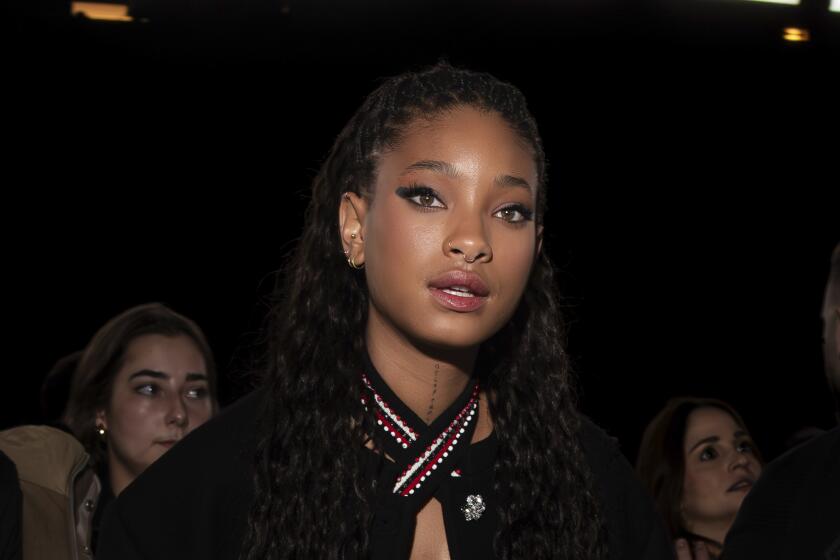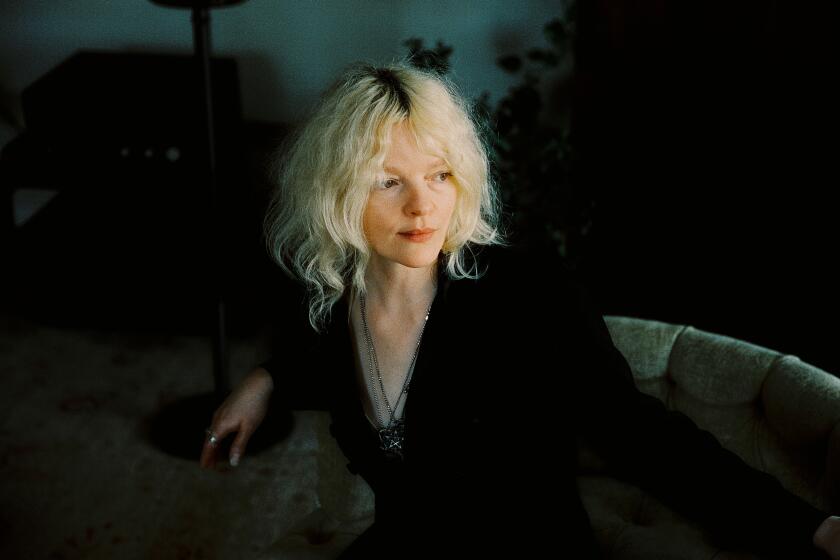Sonic Youth Keeps N.Y. Underground Tradition Alive
There’s the Manhattan of Woody Allen and Donald Trump, all Gershwin sweep and skyscraper grandeur.
Then there’s the Manhattan on the inside cover of Sonic Youth’s new double album, “Daydream Nation.” In the photo, the four band members are seen in front of a forbidding backdrop of graffiti-covered brick and tomb-like doorways barred with corrugated metal.
“I love that,” said Thurston Moore, singer-guitarist with the band that begins a series of Southern California shows tonight at the Back Door on the San Diego State University campus. “It was taken right down the block from where I’ve lived for six years. I find that very romantic.”
Romance amid the squalor has been a theme of New York rock ever since the Velvet Underground’s landmark 1967 debut album (the one with the Andy Warhol banana on the cover), which interspersed accounts of heroin addiction and sadomasochistic sex with openhearted love songs.
Now, in the late ‘80s, Sonic Youth is the New York band doing the most to carry on its hometown’s rich underground rock tradition, which carried on through the ‘70s with such influential rockers as Television and Patti Smith.
Sonic Youth (which also plays Friday night at Night Moves in Huntington Beach, and Saturday and Sunday nights at the Roxy in West Hollywood) formed in 1981 with Moore and Lee Ranaldo playing guitars and Kim Gordon, Moore’s wife, on bass (drummer Steve Shelley is a more recent addition).
Originally, the band was part of New York’s “No Wave” rock movement, known for music built with imposing blocks of amplified guitar noise. But over the course of more recent albums--”Evol,” “Sister” and now “Daydream Nation”--Sonic Youth has come to shape its feedback blasts and strange guitar harmonics into something approximating the pop song form observed (with occasional digressions) by the Velvets and their ‘70s progeny.
“It’s just lately that people say we’re expanding on (the New York underground rock tradition), and we find it very flattering,” Moore said in a phone interview this week. “That’s one of the most exciting things, that people are putting it in that light.”
Moore sees one big difference between Sonic Youth and some of its New York predecessors: “With the Velvet Underground, you think about depravity a lot. We definitely don’t deal with situations of depravity. We’re pretty much a milk and cookies outfit.”
But having written a song about the Manson murders, a graphic re-creation of a fatal car wreck, and troubled internal meditations tinged with thoughts of violence and sexual guilt, Sonic Youth certainly doesn’t sound like milk and cookies.
With “Daydream Nation,” Moore said, the band decided, after a fashion, to tackle politics: “The original title was going to be ‘Rock ‘n’ Roll for President.’ ”
It’s an album without political commentary in the style of Billy Bragg or Sting. But it does have a clear platform--in which rock music (and its alter ego, sexuality) can be taken as metaphors, but also as actual means, for piercing individual or national torpor with a sudden shot of vitality.
It’s a platform almost as far from the pop mainstream as it is from the political mainstream.
“We’ve had meetings with different major labels,” said Moore. “They almost immediately realized we’re not going to follow footsteps to success formulas.”
Still, Sonic Youth is benefiting for the first time from the distribution push of a major record company--as opposed to an independent label with fewer resources.
More to Read
The biggest entertainment stories
Get our big stories about Hollywood, film, television, music, arts, culture and more right in your inbox as soon as they publish.
You may occasionally receive promotional content from the Los Angeles Times.







